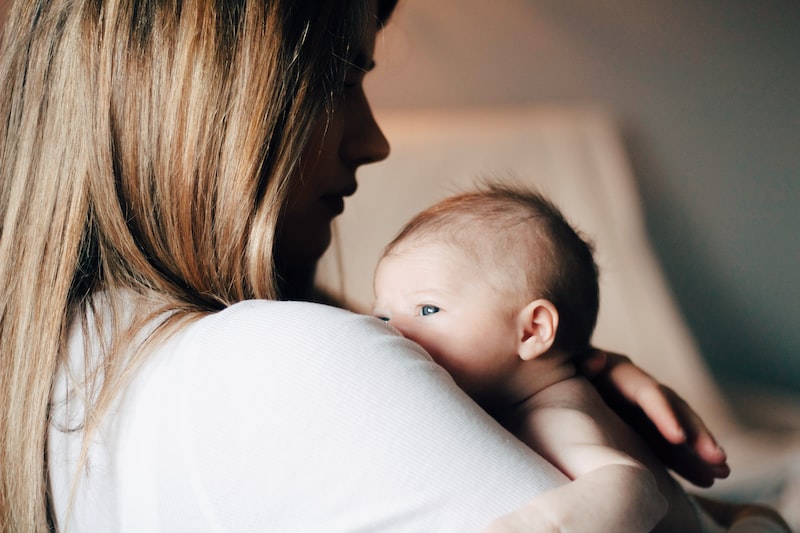Table of Contents

When it comes to family dynamics, fathers play a pivotal role that goes beyond being just a provider. They are the pillars of strength, guidance, and support within the household. In this article, we will explore the essential duties and responsibilities that fathers undertake to ensure a harmonious and nurturing family environment.
One of the primary responsibilities of a father is to provide for his family. This goes beyond financial support; it includes creating a safe and secure home environment where everyone feels protected. A father takes on the responsibility of ensuring that basic needs such as food, shelter, and clothing are met. Moreover, he actively works towards building a better future for his family by making wise financial decisions and planning for their long-term well-being.

Another crucial duty of a father is to be actively involved in his children’s lives. This means taking the time to listen, understand, and communicate with them. By engaging in open conversations, a father can foster trust, strengthen the bond with his children, and provide guidance when they face challenges. Whether it’s helping with homework, attending school events, or participating in recreational activities, a father’s presence and involvement leave a lasting impact on his children’s development.
A father also plays a significant role in shaping the values and morals of his children. Through leading by example, he teaches important life lessons such as honesty, respect, and responsibility. By demonstrating these qualities in his own actions, a father instills a strong moral compass in his children, preparing them to become responsible adults who contribute positively to society.
Moreover, fathers serve as role models for their sons, showing them what it means to be a good man. Sons look up to their fathers for guidance on how to navigate the world, develop healthy relationships, and handle challenges with resilience. Similarly, daughters learn about love, respect, and self-worth from their fathers, which impacts their future relationships and self-esteem.
a father’s role
in the family extends far beyond being a mere provider. He is a guiding force, a protector, and a mentor to his children. By fulfilling his duties and responsibilities, a father sets the foundation for a strong and loving family unit. From providing for their needs to actively engaging with them and instilling important values, fathers play an irreplaceable role in shaping their children’s lives.Breaking Stereotypes: Unveiling the Evolving Role of Fathers in Modern Families
Introduction:
In today’s rapidly changing world, the traditional roles within families are shifting, and fathers are embracing a more active and involved role in parenting. Gone are the days when fathers were solely viewed as breadwinners; they are now breaking stereotypes and actively participating in nurturing their children. This article explores the evolving role of fathers in modern families and highlights the positive impact it has on both children and society as a whole.
The Changing Dynamics of Fatherhood:
Gone are the times when fathers were distant figures, only providing financial support. Today, fathers are increasingly involved in caregiving, taking an equal share of responsibilities alongside mothers. They actively participate in every aspect of their children’s lives, from diaper changes to bedtime stories. This shift has not only given mothers much-needed support but has also fostered stronger bonds between fathers and their children.
Benefits for Children:
Children thrive in an environment where they have strong relationships with both parents. The increased involvement of fathers in parenting has numerous benefits for children’s emotional and cognitive development. Research suggests that children with actively engaged fathers tend to have higher self-esteem, better academic performance, improved social skills, and reduced behavioral problems. Having a loving and involved father figure provides children with a sense of security, support, and guidance as they navigate through life.
Positive Impact on Society:
The evolving role of fathers goes beyond individual families; it has a profound impact on society as a whole. When fathers actively participate in raising their children, it contributes to the breakdown of gender stereotypes and promotes gender equality. This shift challenges societal norms and encourages a more inclusive and progressive outlook. Additionally, research shows that children who grow up with involved fathers are less likely to engage in risky behaviors, such as substance abuse or delinquency, leading to safer and healthier communities.
Conclusion:
From Breadwinner to Caregiver: How Fathers are Redefining their Roles at Home
In today’s rapidly evolving society, traditional gender roles are being redefined as fathers embrace new responsibilities within the family unit. The transition from being the sole breadwinners to actively participating in caregiving has become an empowering and transformative journey for many fathers. This article explores the changing dynamics of fatherhood, highlighting the reasons behind this shift, the benefits it brings, and the challenges that fathers face along the way.
Gone are the days when fathers were merely seen as providers, disconnected from the emotional and nurturing aspects of parenting. Modern fathers have recognized the importance of building strong bonds with their children and being actively involved in their upbringing. By taking a more active caregiving role, they are not only supporting their partners but also fostering deeper connections with their children.
This shift in perspective has been fueled by various factors. Firstly, societal attitudes towards gender roles have evolved, allowing for more flexibility and acceptance of diverse family structures. Additionally, women’s increasing participation in the workforce has created a need for shared responsibilities at home. Fathers are stepping up to the challenge, recognizing the significance of maintaining a work-life balance and ensuring their children receive the love, care, and guidance they need.
The benefits of fathers taking on caregiving roles extend beyond individual families. Research shows that children who have involved fathers tend to have improved cognitive development, higher self-esteem, and better social skills. Moreover, these changes contribute to dismantling harmful stereotypes and promoting gender equality in society. When fathers actively engage in caregiving, they set a positive example for future generations, challenging traditional gender norms and encouraging a more equitable division of responsibilities.
However, transitioning into a caregiving role is not without its challenges. Society still holds onto certain expectations and stereotypes that can make it difficult for fathers to fully embrace their new roles. Overcoming societal judgments and finding support networks can be crucial in navigating these obstacles. Encouraging open conversations and promoting initiatives that highlight successful caregiving fathers can help create a more inclusive environment.
Shared Parenting: Exploring the Benefits of Equally Shared Duties between Fathers and Mothers
Have you ever wondered about the advantages of shared parenting, where fathers and mothers equally share the responsibilities of raising children? It’s a modern approach that goes beyond traditional gender roles and fosters equal participation in parenting. In this article, we will delve into the benefits of shared parenting and how it can positively impact families.
One of the significant advantages of shared parenting is the emotional well-being of children. When both parents actively participate in childcare, children feel secure and loved. They have the opportunity to develop strong bonds with both their mother and father, which helps promote healthy relationships and overall development. Shared parenting also ensures that children are exposed to diverse parenting styles and perspectives, offering them a well-rounded upbringing.

Another benefit of shared parenting is the equitable distribution of household duties. Traditionally, mothers were predominantly responsible for childcare and homemaking tasks, while fathers focused on work and finances. However, shared parenting encourages fathers to be more involved in household chores, such as cooking, cleaning, and laundry. This not only lightens the load for mothers but also promotes a sense of teamwork and cooperation within the family.
Shared parenting also allows both parents to maintain their careers and personal interests. In the past, women often had to put their professional aspirations on hold to fulfill caregiving responsibilities. With shared parenting, fathers can actively participate in childcare, enabling mothers to pursue their careers or personal goals without compromising the family’s well-being. This balance creates a more fulfilling and satisfying life for both parents.
Moreover, shared parenting sets a positive example for future generations. When children witness their parents sharing responsibilities and treating each other as equals, they learn the value of fairness and equality. This paves the way for healthier gender dynamics and challenges traditional stereotypes. By breaking away from traditional gender roles, shared parenting contributes to creating a more inclusive and progressive society.
shared parenting offers numerous benefits for families, including enhanced emotional well-being for children, equitable distribution of household duties, career and personal development opportunities for both parents, and the promotion of equality and fairness. By embracing shared parenting, we can foster stronger family bonds, promote gender equality, and create a better future for generations to come.
The Rise of the Stay-at-Home Dads: Challenging Traditional Gender Norms
The rise of stay-at-home dads is challenging traditional gender norms in a remarkable way. Gone are the days when caregiving and household responsibilities were predominantly considered to be the role of women. Today, fathers are actively embracing their roles as primary caregivers, defying societal expectations and redefining what it means to be a modern dad.
In the past, the image of a traditional family consisted of a breadwinning father and a mother taking care of the children and home. However, times have changed, and more and more fathers are choosing to stay at home and nurture their children while their partners pursue their careers. This shift is driven by various factors, including evolving societal attitudes, greater gender equality, and the desire for a more balanced work-life dynamic.
One of the key drivers behind this trend is the shifting perceptions of masculinity. Society is beginning to recognize that being a caring and involved father doesn’t diminish a man’s strength or masculinity; rather, it showcases his ability to be nurturing and supportive. Stay-at-home dads challenge the notion that parenting is solely a mother’s responsibility, paving the way for a more inclusive and egalitarian society.

Moreover, economic factors also play a significant role. With the rising costs of childcare and the increasing number of dual-income households, families are finding it more practical for one parent to stay at home. Many fathers are willingly stepping into this role, finding fulfillment in being present for their children’s milestones and forming stronger bonds with them.
The rise of stay-at-home dads also brings numerous benefits to children. Research shows that children who have involved fathers tend to have higher self-esteem, perform better academically, and develop healthier relationships. By breaking free from traditional gender norms, these dads are not only positively impacting their own families but also contributing to the overall well-being of future generations.
the rising number of stay-at-home dads challenges traditional gender norms, creating a positive shift in our society. As fathers redefine their roles and take on caregiving responsibilities, they are breaking barriers and fostering a more inclusive and equal world. By embracing this change, we celebrate the diversity of parenting styles and empower men to be nurturing caregivers. The rise of stay-at-home dads is an extraordinary phenomenon that reflects our evolving understanding of gender roles and our relentless pursuit of equality.





